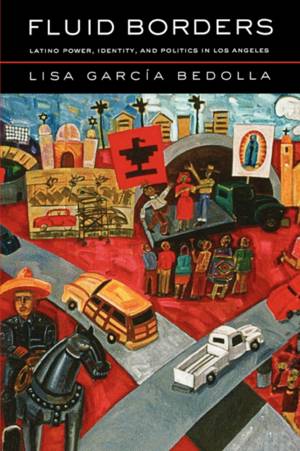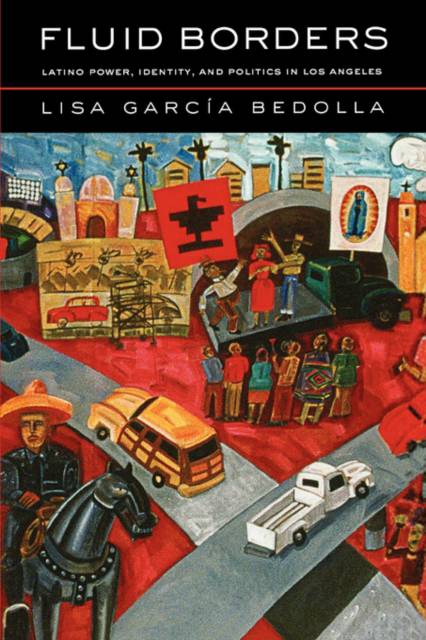
Bedankt voor het vertrouwen het afgelopen jaar! Om jou te bedanken bieden we GRATIS verzending (in België) aan op alles gedurende de hele maand januari.
- Afhalen na 1 uur in een winkel met voorraad
- In januari gratis thuislevering in België
- Ruim aanbod met 7 miljoen producten
Bedankt voor het vertrouwen het afgelopen jaar! Om jou te bedanken bieden we GRATIS verzending (in België) aan op alles gedurende de hele maand januari.
- Afhalen na 1 uur in een winkel met voorraad
- In januari gratis thuislevering in België
- Ruim aanbod met 7 miljoen producten
Zoeken
Fluid Borders
Latino Power, Identity, and Politics in Los Angeles
Lisa García Bedolla
Paperback | Engels
€ 59,45
+ 118 punten
Omschrijving
This provocative study of the Latino political experience offers a nuanced, in-depth, and often surprising perspective on the factors affecting the political engagement of a segment of the population that is now the nation's largest minority. Drawing from one hundred in-depth interviews, Lisa García Bedolla compares the political attitudes and behavior of Latinos in two communities: working-class East Los Angeles and middle-class Montebello. Asking how collective identity and social context have affected political socialization, political attitudes and practices, and levels of political participation among the foreign born and native born, she offers new findings that are often at odds with the conventional wisdom emphasizing the role socioeconomic status plays in political involvement.
Fluid Borders includes the voices of many individuals, offers exciting new research on Latina women indicating that they are more likely than men to vote and to participate in political activities, and considers how the experience of social stigma affects the collective identification and political engagement of members of marginal groups. This innovative study points the way toward a better understanding of the Latino political experience, and how it differs from that of other racial groups, by situating it at the intersection of power, collective identity, and place.
Fluid Borders includes the voices of many individuals, offers exciting new research on Latina women indicating that they are more likely than men to vote and to participate in political activities, and considers how the experience of social stigma affects the collective identification and political engagement of members of marginal groups. This innovative study points the way toward a better understanding of the Latino political experience, and how it differs from that of other racial groups, by situating it at the intersection of power, collective identity, and place.
Specificaties
Betrokkenen
- Auteur(s):
- Uitgeverij:
Inhoud
- Aantal bladzijden:
- 293
- Taal:
- Engels
Eigenschappen
- Productcode (EAN):
- 9780520243699
- Verschijningsdatum:
- 7/10/2005
- Uitvoering:
- Paperback
- Formaat:
- Trade paperback (VS)
- Afmetingen:
- 154 mm x 226 mm
- Gewicht:
- 408 g

Alleen bij Standaard Boekhandel
+ 118 punten op je klantenkaart van Standaard Boekhandel
Beoordelingen
We publiceren alleen reviews die voldoen aan de voorwaarden voor reviews. Bekijk onze voorwaarden voor reviews.









